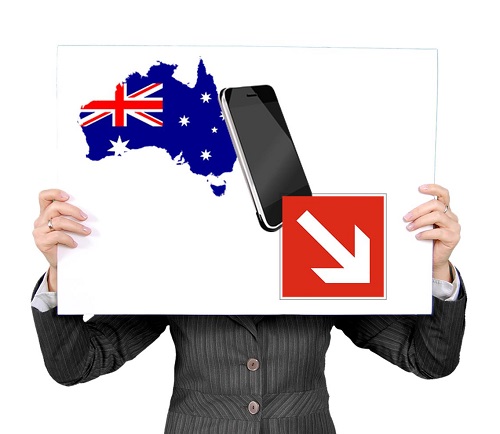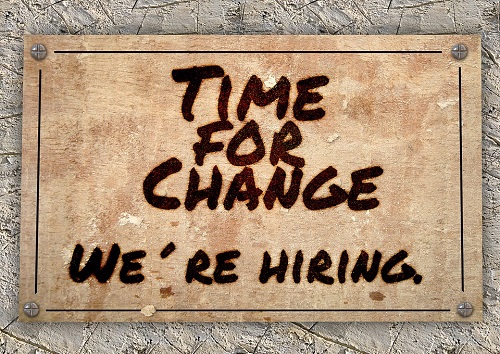Denny |
September 27, 2016
According to the results of a recent analysis, businesses in Australia aren’t keeping up with consumer device use.
PayPal Australia released a report that said Australian mobile commerce is lacking. It stated that businesses simply aren’t keeping up with the way consumers are using their smartphones. This includes many of the different ways in which consumers regularly use their devices.
Mobile device uses analyzed by PayPal for the report included everything from researching a brand to mobile payments.
PayPal released its Australian mobile commerce report as a part of its first ever mCommerce Index. This report will be issued biannually. It will look into the trends in smartphone based shopping and payments within the country.
 Among the central report findings was that even though 71 percent of consumers in Australia are using their smartphones to make payments, only 49 percent of companies have mobile optimized.
Among the central report findings was that even though 71 percent of consumers in Australia are using their smartphones to make payments, only 49 percent of companies have mobile optimized.
According to the report, all businesses in the country could benefit from mobile commerce optimization.
Libby Roy, the managing director at PayPal Australia, explained that each business has its own mobile commerce level needs. However, Roy also underscored the fact that all businesses are able to benefit from it in one way or another. “What’s clear is that there are a lot of consumers that are very comfortable using mobile, and businesses need to get on board.”
Roy explained that everything from having an app to simply having a social media presence is important. It is up to businesses to understand the ways in which they can benefit their customers through mobile commerce. This simultaneously allows them to determine how they can grow their own success.
The report indicated that one in three Australians were making weekly mobile payments. One in ten Australians spend over $1,000 per month using smartphone based transactions. On average Australians are using their mobile devices to make $330 in purchases on a monthly basis. And yet, Australian mobile commerce offerings are not keeping up with that consumer shopping trend. What makes the mobile shopping trend a challenge to measure is that consumers use mobile and non-mobile business interactions in combinations with each other before completing a final transaction.
BWild |
September 26, 2016
This new recruitment technique has been gamified to help to reduce the risk of unconscious bias.
Unilever has announced a new mobile gaming strategy it has launched as a part of its new hire selection process. They have added this new technique in order to promote diversity while speeding up the process as a whole and reducing the cost of hiring.
This giant consumer goods company is launching the process in the UK following success in other countries.
Unilever has already implemented similar mobile gaming strategy programs in the United States and Asia. They have proven to be successful for hiring new staff in those regions. The British and Dutch company is now expanding the program to save money and time while limiting the risk of unconscious bias when new staff is hired. Considering the fact that last year saw applications from 250,000 graduates around the world, this is an important step. The strategy brings mobile games together with video interviews.
Unilever says this mobile gaming strategy for hiring represents the first fully digitized recruitment process.
 That said, other companies have used mobile gamification to help the process. For instance, Vodafone, L’Oréal UK and Ireland, Microsoft, and Ernst & Young. Those brands each use the Debut mobile app as a part of their hiring process.
That said, other companies have used mobile gamification to help the process. For instance, Vodafone, L’Oréal UK and Ireland, Microsoft, and Ernst & Young. Those brands each use the Debut mobile app as a part of their hiring process.
In Unilever’s case, new applicants complete an online application form. Those who do so successfully then receive an application to play a number of games for a maximum of twenty minutes. Those with the best results are selected to receive a video interview. The applicants who are preferred during that phase move on to the final stage. In that stage, they take a virtual tour of the Unilever offices and experience a virtual collaboration. This provides them with an idea of how it feels to work within one of the company’s real environments.
The mobile gaming strategy for hiring was, in part, a response to data such as that produced by University College London and the Monster employment website. That research indicated that nearly half of all firms use video interviews as a component of their selection process. Moreover 7 percent no longer conduct face-to-face interviews. This occurs, despite the fact that it could promote appearance-based discrimination.
 Among the central report findings was that even though 71 percent of consumers in Australia are using their smartphones to make payments, only 49 percent of companies have mobile optimized.
Among the central report findings was that even though 71 percent of consumers in Australia are using their smartphones to make payments, only 49 percent of companies have mobile optimized.
 That said, other companies have
That said, other companies have 